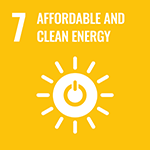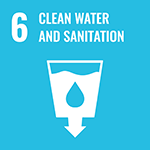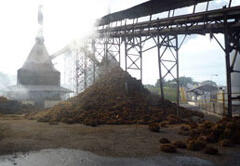Promotion of Green Economy with Palm Oil Industry for Biodiversity Conservation
Principal Investigator
-


Prof.
Graduate School of Life Science and Systems Engineering, Kyushu Institute of Technology
SHIRAI Yoshihito


Prof.
Faculty of Biotechnology and Biomolecular Sciences, University Putra Malaysia (UPM)
Mohd Ali Hassan
ODA Recipient Country
Malaysia
Research Institutions in Japan
Kyushu Institute of Technology / The National Institute of Advanced Industrial Science and Technology (AIST) / Kyushu University (KU)
Research Institutions in Counterpart Country
Putra University, Malaysia (UPM) / Sabah University of Malaysia (UMS)
Adoption fiscal year
FY 2012
Research Period
4 Years
Overview of the Research Project
Flexible initiative protects the environment while maintaining the industry required for growth
Sabah on the island of Borneo is a treasure-house of biodiversity and a popular destination for ecotourism, but in the upper reaches of its rivers there are many oil palm plantations and palm oil mills, and there is concern that effluent and other waste from the mills may pollute the environment. However, the palm oil industry provides a vital source of income in Sabah state, so it is necessary to discover how to protect the environment while still benefiting from the industry. By applying environmental energy technology from Japan, this project aims to create an innovative green industry that makes effective use of surplus biomass and surplus energy while preserving the environment.
Innovative green industry creates jobs through an approach that is scalable to other countries
At the same time as providing employment by creating a biomass plastic industry, the project aims to improve the environment for Sabah’s vast wetlands and rivers, which contributes to preserving biodiversity. This model is also applicable to other palm oil producers such as Indonesia and Nigeria. In addition, the project is contributing to Japanese industry through the development of innovative nano-composite technology.
* Nano-composite: Composite material with nano-size biomass particles mixed into plastic.
Materials as strong as steel may be feasible with this technology.
Photo gallery
Research Project Web site
Press Release
Links
Projects
Contact Us
Japan Science and Technology Agency (JST)
Department of International Affairs
SATREPS Group
TEL : +81-3-5214-8085
Related articles by Category
- Carbon Neutrality
Environment / Energy
(Carbon Neutrality)
 Kingdom of Cambodia
Kingdom of Cambodia
Using water management to reduce methane emissions from rice paddies!
Development and Social Implementation of Greenhouse Gas Emission Reduction Technologies in Paddy Fields of West Tonle Sap Lake by Establishing a Large Paddy Area Water Management System
- Malaysia
Environment / Energy
(Global-scale environmental issues)
 Malaysia
Malaysia
Recover water, electric power, and mineral resources from palm oil mill effluent!
Development of Palm Oil Mill Effluent (POME) Treatment System for Sustainable Energy Production and Resource Recovery based on Material Innovation
- Asia
Environment / Energy
(Global-scale environmental issues)
 Kingdom of Thailand
Kingdom of Thailand
“Natural rubber seeds”, the unlimited potential hiding in natural rubber plantations
Utilization Technology of Rubber Seeds for Green Products to Mitigate Global Warming and Plastic Pollution
- SDGs : Goal.7
Environment / Energy
(Carbon Neutrality)
 Republic of Uzbekistan
Republic of Uzbekistan
Establishing hydrogen production technologies that fully utilize everything from solar power to underground resources!
Development of Innovative Technologies for Efficient Generation of Green/Blue Hydrogen for Realization of Carbon-neutral Society with Consideration of Industrial and Environmental Characteristics in the Region



















